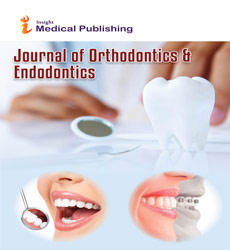Abstract
RNAi-based personalized therapeutic strategies in Oral Cancers: How far have we come?
To a classical technique to determine the function of a gene is to experimentally inhibit its gene expression in order to examine the resulting phenotype or effect on molecular endpoints and signaling pathways.
RNA interference (RNAi) is one of the recent discoveries of a naturally occurring mechanism of gene regulation facilitated by the induction of double stranded RNA into a cell. Synthetic short interfering RNAs (siRNAs) can be designed to silence the expression of specific genes bearing a particular target sequence and may potentially be presented as a therapeutic strategy for inhibiting transcriptional regulation of genes, which in such instances constitute a more attractive strategy than small molecule drugs. Commercially available RNAi libraries have made high-throughput genome- scale screening a feasible methodology for studying complex mammalian cell systems. However, it is crucial that any observed phenotypic change be confirmed at either the mRNA and/or protein level to determine the validity of the targeted genes.
Here, we describe a high-throughput screening of RNAi based gene knock-down approach and qPCR validation of specific transcript levels. Oral cancers are most often discovered after they have spread to the lymph nodes of the neck. Early detection is key to surviving oral cancer.
In light of such advantageous applications, siRNA technology has become an ideal research tool for studying gene function in various research fields, and holds the promise that the utilization of siRNA- based therapeutic agents will accelerate drug discovery in clinical trials including oral cancers.
Author(s):
Sukru Tuzmen
Abstract | PDF
Share this

Google scholar citation report
Citations : 265
Journal of Orthodontics & Endodontics received 265 citations as per google scholar report
Abstracted/Indexed in
- Google Scholar
- China National Knowledge Infrastructure (CNKI)
- Cosmos IF
- Directory of Research Journal Indexing (DRJI)
- WorldCat
- Geneva Foundation for Medical Education and Research
- Secret Search Engine Labs
- Euro Pub
Open Access Journals
- Aquaculture & Veterinary Science
- Chemistry & Chemical Sciences
- Clinical Sciences
- Engineering
- General Science
- Genetics & Molecular Biology
- Health Care & Nursing
- Immunology & Microbiology
- Materials Science
- Mathematics & Physics
- Medical Sciences
- Neurology & Psychiatry
- Oncology & Cancer Science
- Pharmaceutical Sciences

